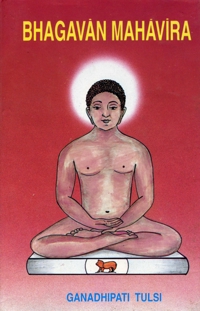 | Chapter 9 | Philosophy And Exhortation |
31.
A truthful man is treated as reliable as the mother, as venerable as the guru (preceptor) and as beloved as the one who commands knowledge.
(Mulacara, 837)
32.
Truthfulness indeed is tapa (penance). In truthfulness do reside self-restraint and all other virtues. Just as the fish can live only in the sea, so can all other virtues reside in truthfulness alone.
(Bhagavati Aradhana, 842)
33.
One may have a tuft or matted hair on the head or a shaven head, remain naked or wear a rag. But if he tells a lie, all this is futile and fruitless.
(Bhagavati Aradhana 843)
34.
One can bear all kinds of unbearable pain caused by spikes in expectation of wealth etc. But he alone who tolerates without any motive of worldly gain, harsh words spoken to him is venerable.
(Dasavaikalika, 9/3/6)
35.
One should not speak unless asked to do so. He should not disturb others in conversation. He should not backbite and indulge in fraudulent untruth.
(Dasavaikalika, 8/46)
36.
One should not utter displeasing words that arouse ill feelings in others. One should not indulge in speech conducive to the evil.
(Dasavaikalika, 8/47)
37.
Discipline of speech consists in refraining from telling lies and in observing silence.
(Mulacara, 332)
38.
The sadhaka (one who practises spiritual discipline) speaks words that are measured and beneficial to all living beings.(Kartikeyanupreksa, 334)
39.
The bhiksu (ascetic) should not be angry with one who abuses him. Otherwise he would be like the ignoramus. He should not therefore lose his temper.
(Uttaradhyayana, 2/24)
40.
If somebody were to beat a disciplined and restrained ascetic, the latter should not think of avenging himself considering the soul to be imperishable.
(Uttaradhyayana, 2/2)
 Acharya Tulsi
Acharya Tulsi

